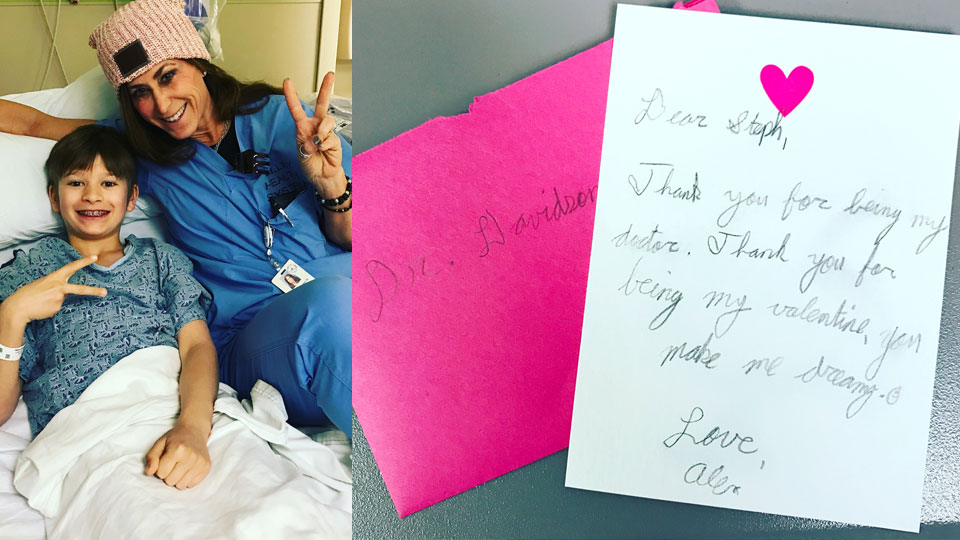Pediatric anesthesiology
We understand that going through a surgical procedure can be unsettling for children and their families. The idea that your child will be sedated for a medical procedure may be unnerving and stressful for you. We want to assure you that your child will be in experienced and caring hands. We will do everything possible to comfort you and your family during this experience.
We have a dynamic and dedicated pediatric anesthesia team. We have recruited physicians who have completed specialty training in pediatric care, including pediatric fellowships, which makes them uniquely qualified to care for your most precious possession — your children. Our highly trained clinicians vigilantly care for your child with the safest medications and modern medical equipment available today. We are dedicated to comforting your child and ensuring their safety to the highest standards throughout the operative process.

I am committed to being open-minded and open-hearted. It’s important that I treat each child and their family as unique — they have their own concerns, their own story and their own hopes. I try to be in their shoes and see things from their perspective.
When can I speak with the anesthesiologist that will care for my child?
We believe it is important for you to have the opportunity to talk with the clinician that will be caring for your child. Prior to the procedure, you will be able to meet with the anesthesia clinician who will be caring for your child. This is an important conversation where you can ask questions, share more about your child’s needs and history, and obtain a full understanding of the anesthesia process for your child.

How can I prepare my child for surgery?
You can help your child prepare for the procedure by introducing them to the idea of surgery and discussing the coming events. Depending on their developmental level, they may have different fears, including separation anxiety, fear of IV placement and needles, fear of waking up during surgery or pain after surgery. You can reassure your child by explaining that an anesthesia doctor will give them special medicine to keep them asleep for the operation and to take away the pain. A child’s anxiety is often minimized when parents discuss their fears in a calm and supporting manner.
When should my child stop eating and drinking before their procedure?
If your doctor gives you instructions that differ from the guidelines below, follow the instructions your doctor gives you.
Up to 8 hours prior to the scheduled start of your child’s anesthetic/procedure, your child may consume any type of meal.
Up to 6 hours prior to the scheduled start of your child’s anesthetic/procedure, your child may consume:
- A light snack (examples include one piece of toast without butter or a child’s handful of fat-free crackers, water)
- Any type of milk or infant formula
- A bowl of cereal with milk
Up to 4 hours prior to the scheduled start of the anesthetic/procedure your infant child may consume breast milk
Up to 2 hours prior to the scheduled start of the anesthetic/procedure your child may consume clear liquids such as fruit juices without pulp (apple, cranberry are good examples) water, Pedialyte, Gatorade, 7-Up
Important considerations:
- These recommendations apply to healthy pediatric patients who are undergoing elective procedures
- Following the guidelines does not guarantee complete stomach< emptying
- Meals that include fried or fatty foods or meat may increase the amount of time it takes the stomach to empty. Additional fasting time (e.g., 8 hours or more) may be needed in these cases. Your doctor will instruct you if this is needed
- If your child eats or drinks too close to the time of the procedure, it is possible the procedure will have to be re-scheduled for safety reasons
It is a privilege to be entrusted by families with the anesthetic care of their infants and children. It's hard to imagine anything more rewarding.
Are the risks of anesthesia different between children and adults?
Respiratory complications are more frequent in the pediatric population, while injury to the nervous system is more common in adults. In experienced hands, the risk of anesthesia in children is very low. Click Here for more information about Anesthesia Safety for Children.
How will my child go to sleep?
The age and maturity of your child will determine how he or she will go to sleep. With younger children, the most frequent approach allows the child to breathe themselves off to sleep with oxygen, nitrous oxide (laughing gas), and anesthesia gas. An older child will often choose to get an intravenous (IV) line placed, that allows direct administration of medications. This is a faster way to go to sleep. If your older child is afraid of the IV needle an inhalation induction is an option in some situations. The anesthesia team that cares for your child will remain with them throughout surgery to ensure their comfort and safety.
What will you do if my child is anxious before surgery?
Medications are available that will sedate your child prior to the start of the anesthetic. These medications are similar to Valium® but are shorter acting. These medications can be given either by mouth or through an IV. In some institutions, induction rooms are available for the child to be with their parents while going off to sleep. Your anesthesiologist will decide what is best for your child after discussion with you.
Please Note: The information provided on this website does not take the place of consultation with one’s physician. The advice given does not establish a physician-patient relationship.
I’m a parent as well as a physician, so it is important to me that all aspects of each child’s procedure are as safe and comfortable as possible. I care deeply and treat each child in my care as if they were one of my own kids.